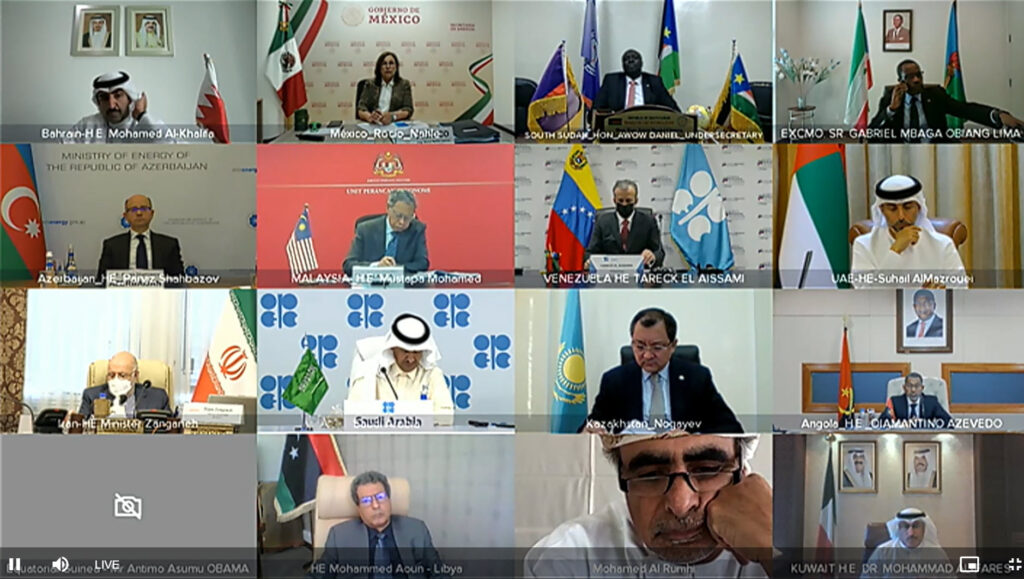US energy secretary Jennifer Granholm spoke with Prince Abdulaziz ahead of today’s meeting and emphasised the importance of ensuring “affordable” energy for consumers. Brent crude prices have remained above $60/bl since early February.
Rolling over current production quotas into May would accelerate rebalancing, but some analysts have raised concerns that it could increase price volatility.
Prince Abdulaziz said that although the market is on a “stable footing” and stocks are continuing to draw down, the Opec+ alliance should maintain this “cautious” stance “until the evidence of a recovery is undeniable”. He pointed to successful vaccine roll-outs in the UK and the US, but highlighted renewed restrictions in some parts of the world and rising infection rates in the Eurozone.
Despite striking a more optimistic tone, Russian deputy prime minister Alexander Novak acknowledged the lingering uncertainties and advised “monitoring the market carefully and making sure it is not oversupplied”. Opec’s president and Angolan oil minister Diamantino Azevedo echoed this sentiment, saying that “despite the light we can see on the horizon, we must be aware of the clouds that remain”, and pointing to ongoing travel disruption as a result of the pandemic.
There is significant support for a rollover of current quotas into May, several delegates told Argus. But an option to raise production also remains on the table. According to one delegate, members of the Joint Ministerial Monitoring Committee (JMMC) yesterday discussed raising output quotas by a collective 500,000 b/d in May. This is the maximum production adjustment that can be decided in any single meeting.
It was not immediately clear how Saudi Arabia will proceed with its additional voluntary 1mn b/d cut beyond April, a topic that is likely to hang over the meeting.
Prince Abdulaziz also stressed today the importance of Opec+ continuing its “impressive” compliance levels with its quotas. Argus estimated group compliance was 114pc in February. But this is likely to be a concern raised during today’s meeting, particularly regarding Kazakhstan. The country has struggled to deliver on its pledged cuts for much of the agreement and has asked for more time to compensate for its overproduction.

